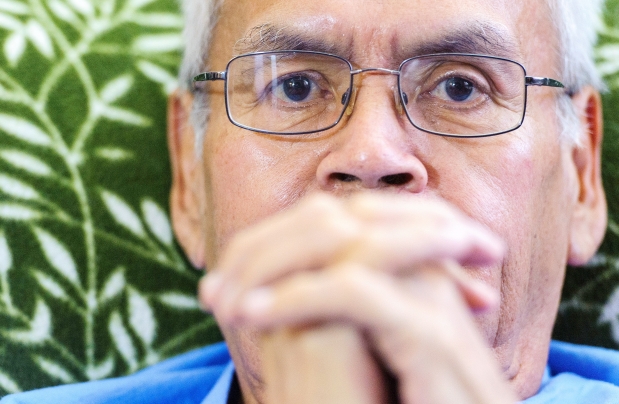Victim of Residential Schools Recalls Abuse As Reconciliation Week Begins
By Cheryl Chan
Alvin Dixon was only 10 when he was torn away from his family in Bella Bella and sent to a residential school in Port Alberni. It didn’t take long before he got his first thrashing. His sin: Speaking his Heisla language with another student. “A supervisor heard me, took me to the playroom in the basement, leaned me over the bench and walloped me over and over with a strap,” says Dixon, 76, a member of the Heiltsuk First Nation. It didn’t get better in the eight years afterwards, he says: “You’re sent to an institution very much like a jail, nothing gets better.” Residential school led to the loss of his native language, the breakdown of his family and contributed to his own demons, including being an “emotional terrorist” to his own family in the past. “It’s a whole range of not-so-obvious effects, but lasting,” he says. Dixon’s story is similar to the experience of thousands of aboriginal kids who were placed in the residential-school system, which operated in Canada from 1875 to 1996, with the goal of assimilating them into mainstream culture. Many were subjected to emotional, physical and sexual abuse. “Residential schools are but one policy in a long list of policies that were implemented in order to incarcerate First Nations,” said Karen Joseph, executive director of Reconciliation Canada, a group working to improve relationships between aboriginals and Canadians. “There’s a vast majority of Canadians who are unaware of it, and unaware as to how pervasive it was.” Next week, Reconciliation Canada is holding several events in Vancouver as part of a gathering of the national Truth and Reconciliation Commission. Reconciliation Week kicks off Monday with a fire-lighting ceremony and ends Sunday with a downtown walk and a keynote speech by Dr. Bernice King, daughter of Dr. Martin Luther King Jr. Up to 50,000 people are expected to participate in the walk. Reconciliation Week complements the national Truth and Reconciliation Commission (TRC) event at the Pacific National Exhibition Centre Sept. 18-21. The four-day event is an opportunity for residential-school survivors to share their experience with the commission and the public. All events are free. UBC and Trinity Western University are suspending most classes Sept. 18 to encourage students and faculty to attend the TRC event, while the University of the Fraser Valley will replace its curriculum that day with events and displays about residential schools and their legacy. Contact: chchan@theprovince.com
|
.
Any original material on these pages is copyright © BishopAccountability.org 2004. Reproduce freely with attribution.
